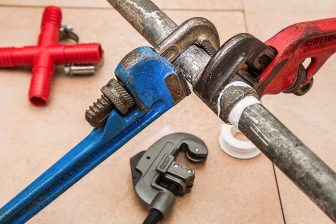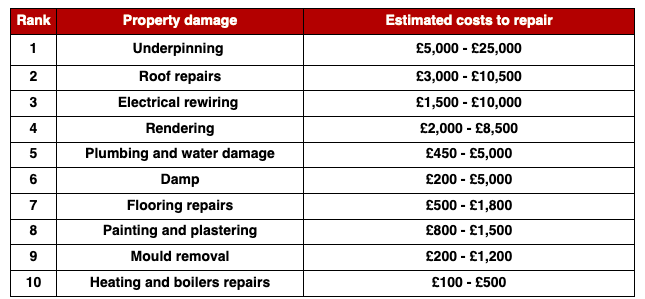 Landlords face carrying out repair and maintenance work an average of 72 times throughout ownership of a buy-to-let property, according to new research, with the cost sometimes exceeding £34,000.
Landlords face carrying out repair and maintenance work an average of 72 times throughout ownership of a buy-to-let property, according to new research, with the cost sometimes exceeding £34,000.
Underpinning has been revealed as the priciest home repair for landlords in the analysis by buy-to-let insurance provider Alan Boswell Group and comparison site Compare My Move.
According to the research, underpinning can cost landlords upwards of £25,000 depending on property size.
The structural intervention of underpinning becomes necessary when the foundations of a property weaken – often due to persistent subsidence – prompting a complex process that incurs eye-watering expenses.
Fortunately, underpinning is only needed in fewer than 10% of UK properties affected by subsidence.
Roof repairs are the second most expensive task to undertake, according to the research, potentially costing landlords up to £10,500 for a complete replacement.
Typically, roofs require a full repair every 25 years, although this timeline can fluctuate based on factors such as weather conditions, property age, and roofing material. Rubber roof and tiles are generally cheaper compared to slate or fibreglass. If you’re dealing with just a handful of cracked or missing tiles needing replacement, the average cost hovers around £200, according to the analysis.
The third most expensive fix for landlords is electrical rewiring, which can reach a whopping £10,000 for a full property service.
Rendering comes fourth on the list, with estimated repair costs soaring up to £8,500.
Rounding off the top five most expensive property damages is plumbing and water damage, with landlords potentially losing up to £5,000 in severe cases like water damage restoration costs post-flooding.
Heath Alexander-Bew from Alan Boswell Group said: “Caring for rental properties goes beyond mere upkeep – it’s about safeguarding investments and ensuring tenants live in safe, compliant homes.
“Landlords can significantly mitigate maintenance costs with regular inspections in order to address maintenance needs promptly, preventing small issues from snowballing into major repairs.
“Well-maintained properties attract discerning tenants who value quality and are willing to pay competitive rents for a well-cared-for home.”



…wouldn’t underpinning be covered by subsidence insurance?
You must be logged in to like or dislike this comments.
Click to login
Don't have an account? Click here to register